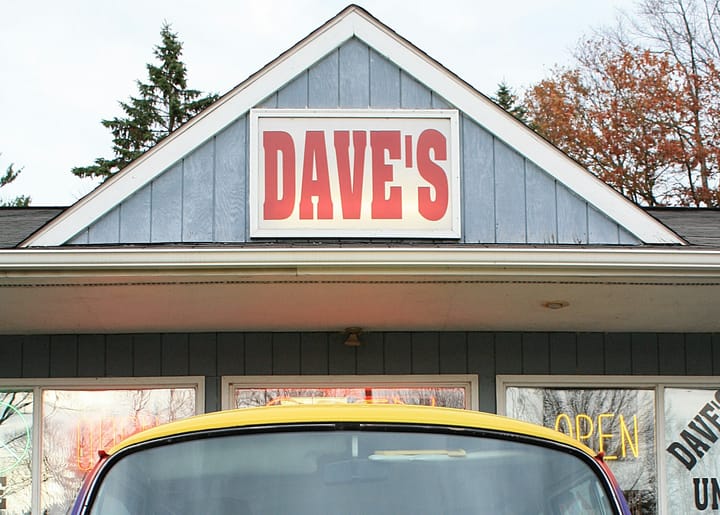Justin's provokes restaurant goers to highlight the plight of bees plus...5 more trojan horse provocation campaigns
The most important job of advertising is to grab your audience’s attention in the first place. Yet, most of the time, your audience isn’t bothered by what you have to say. That’s when it can pay to disguise your message into something that your audience does find interesting.

The most important job of advertising is to grab your audience’s attention in the first place. For without their attention, your message will go unnoticed or ignored. Yet, most of the time, your audience isn’t bothered by what you have to say. That’s when it can pay to disguise your message into something that your audience does find interesting. Better still, if you can find a behaviour, a metaphor or stunt that will articulate your message and provoke a reaction – you’re in a great position to plan your response to that reaction. And the great news – now your outraged audience will be paying attention! Here are five such trojan horse provocation campaigns starting with this recent brand purpose campaign by Justin's.
Help Justin's Help The Bees | Justin's | Barkley | 2023
Justin's, a US nut butter and organic chocolate candy brand, has launched a campaign in collaboration with Barkley, Arc, and Schroder Haus to raise awareness about the importance of pollinators in the food system. Based on the insight that one in three bites of food we eat is made possible by pollinators like bees, the campaign begins with a restaurant where waiters remove one-third of the meals served to diners and film their reaction. The initiative also includes online videos, social content, in-store demos, and influencer partnerships. While The Pollinator Project microsite offers information and tips for supporting pollinators with visitors who take the Planting for Pollinators pledge gaining a chance to win a grand prize package.
Wait For Water | Water.org/ Stella Artois
This campaign focused on putting the global water crisis in perspective for consumers. As part of the campaign, patrons at restaurants and hotels were told they must wait six hours to get drinking water or running water in their rooms. Their frustration is captured on hidden cameras. Once the tensions rise, Water.org co-founder Damon appears on a disguised screen to share the realities of the global water crisis and this dramatically changes the perspectives of the duped patrons - a classic example of a trojan horse provocation.
The World's Toughest Job | American Greetings | Mullen Lowe | 2015
On behalf of American Greetings Cards, Mullen Lowe created a campaign called The World’s Toughest Job which commenced by creating a fake job ad seeking a candidate for ‘Director Of Operations’ to perform all the duties of a mother, including “standing up almost all the time”, “constantly exerting yourself” and “working from 135 to unlimited hours per week.” This trojan horse provocation then shows us the aghast reactions of candidates who applied for this fake job as the list of ridiculous demands keep piling up. Finally, the ruse is revealed, and we see their reactions change. It’s a powerful moment as we can all appreciate our mom having done the worst job and the toughest job in the world. This experiential campaign was great fun. But it is far more than ‘prankvertising’. It gave the brand a fabulously compelling way to grab our attention and compel us to see how ‘they see’ mums.
Distracted Goalkeeper | Uber
Brazil has over 54,000 traffic accident casualties annually and a big cause is texting and driving. Uber wanted to draw attention to this and used a trojan horse provocation to do it. During an important football match, fans spotted a goalkeeper checking his mobile. The player’s actions stormed social media and press. A few days later, the goalkeeper linked his attitude with text and driving. Now the whole country was paying attention and ready to listen. Provoke in a pop-cultural context, Let Them Vent, Explain. Simple!
Bradshaw Stain | Tide | Saatchi & Saatchi | 2017
During the Super Bowl, the world saw a BBQ sauce stain on sports presenter Terry Bradshaw's shirt. It felt like live TV, but it was really a very clever trojan horse provocation campaign that used the freakish consequences of doing nothing [when you get a stain] to grab attention. Tens of thousands discussed the stain on social media [the planned reaction] until Tide came forward and claimed the stain—and more importantly, showed the world how to get it out like only they can [the brand message].
The Day Women Left The Set | La Sirena |
If you’ve got time to watch TV, you’ve got time to do something to save your life. This was the powerful message put out by La Sirena, Dominican Republic’s largest department store. They teamed up with the country’s most popular female newscasters to create a powerful message that no matter how busy you are, there’s always time to check your breasts for cancer. By using the busy newscaster as the protagonist, showing her taking a couple of minutes off air, and not immediately sharing the reason why, La Sirena’s message made an impact that made audiences pay attention and more importantly, act. More than 4,000 mammograms were booked that day.



